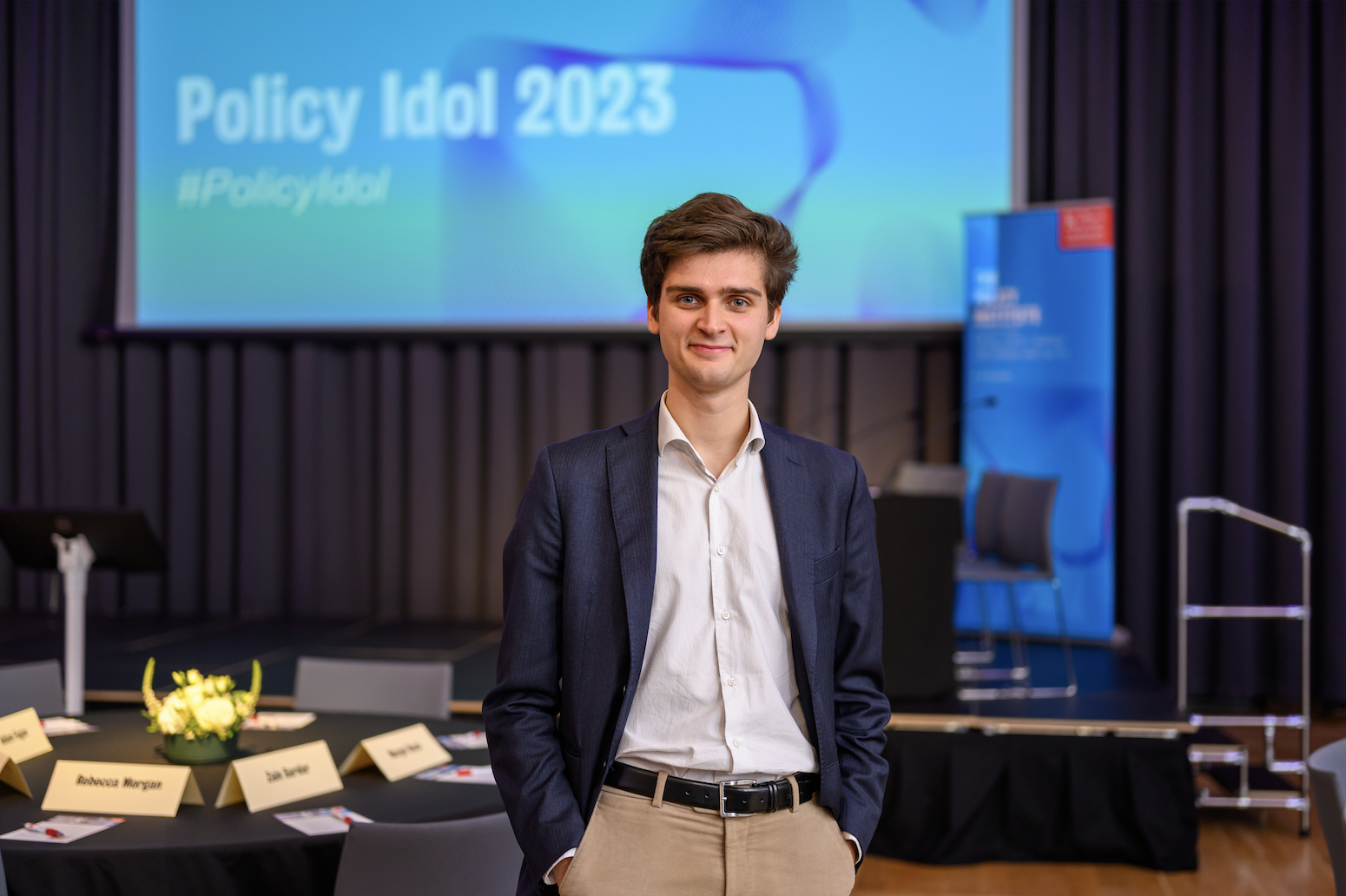 The Policy Idol competition has been an exceptional platform for young policy enthusiasts to showcase their skills and ideas, providing them with a unique opportunity to refine their communication and analytical abilities. The experience gained from participating in the competition is invaluable and will undoubtedly add an extra edge to their performances in their future paths. Today, we hear from Matteo Nebbiai, who’s currently a first-year PhD student at the King’s Department of Political Economy.
The Policy Idol competition has been an exceptional platform for young policy enthusiasts to showcase their skills and ideas, providing them with a unique opportunity to refine their communication and analytical abilities. The experience gained from participating in the competition is invaluable and will undoubtedly add an extra edge to their performances in their future paths. Today, we hear from Matteo Nebbiai, who’s currently a first-year PhD student at the King’s Department of Political Economy.
What’s the ‘Clean the Crypto’ policy about?
I propose to make the UK the global standard-setter in terms of clean cryptocurrencies. First, we should ban any type of public subsidy to projects using the proof-of-work protocol, which is the most polluting type of cryptocurrency. Second, we should hold crypto trading platforms accountable for their environmental impact. Finally, we should tax the profits made through the exchange of proof-of-work cryptocurrencies.
What motivated you to join Policy Idol?
The opportunity to test in front of a wide and educated audience some policy solutions that I found convincing in my studies. Mainly, I was interested in diffusing these ideas among a wider public and obtaining feedback by interacting with the judges. On both points, I am satisfied with the experience, also thanks to the warm and amusing environment.
What notable skills or experience did you gain from this event?
I think pitching anything in three minutes is a great exercise in conciseness and clarity! Especially when talking about topics that may initially appear complex and technical such as cryptocurrencies. The heat really improved my sense of which points of the problem I should focus on when I speak to a broad public, and this will help a lot if I will advance the proposals in other forums. Also, when watching the pitches of the other participants it was particularly inspiring to hear different presentation styles and questions from the judges.
What would you like to do in your career/after you leave King’s? Would it be something to do with Policy?
I am still not sure whether to pursue an academic career or a more policy-oriented path. In general, I would like to keep using my knowledge to advocate for policy changes I believe in. This might happen either by becoming a scholar involved in societal issues, or for example a civil servant.
What would you advise potential students who are looking to participate in Policy Idol?
The urge for policy change arises from emotions towards certain topics: the more you can instil these emotions in the public, the more convincing a proposal is. Policymaking may sound like a cold, rational procedure, but I think that shaking people’s beliefs is one of the most important steps. Moreover, in the context of multiple presentations, I think that conciseness is key: only include in the presentation the points you feel are essential to explain and convince the audience!